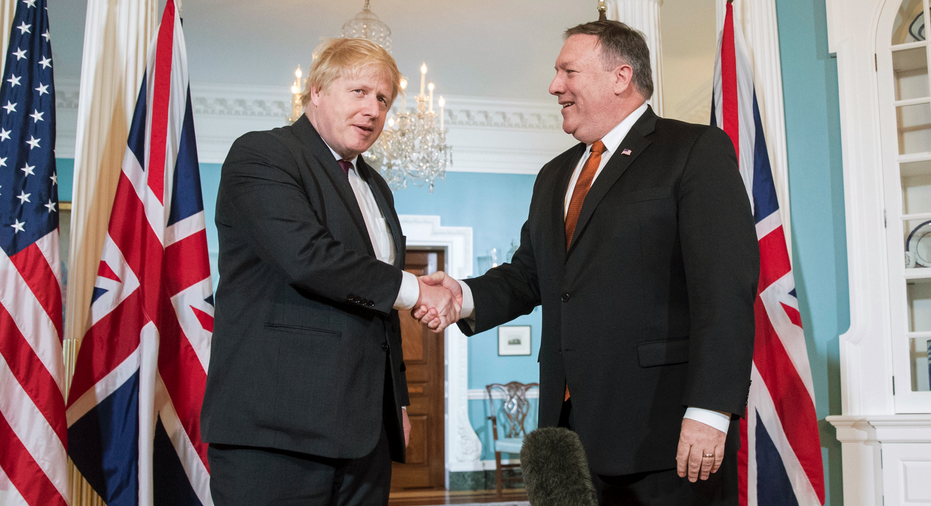UK foreign secretary attacks May customs proposal as 'crazy'

LONDON – British Foreign Secretary Boris Johnson has attacked Prime Minister Theresa May's plan for a customs partnership with the European Union after the U.K. leaves the bloc — the latest discord within the Conservative government over Brexit.
Johnson told Tuesday's edition of the Daily Mail newspaper that the partnership idea was "crazy" and would create a "whole new web of bureaucracy."
The comments come after May's Cabinet last week failed to agree on a proposal for Britain's future customs relationship with the EU. May's preferred option is a partnership under which the U.K. would collect import duties on behalf of the EU for goods arriving at British ports.
Johnson said May's idea was "totally untried and would make it very, very difficult to do free trade deals."
His dismissal of the proposal stands in marked contrast to comments by Business Secretary Greg Clark, who said Sunday that the customs partnership option was still being considered.
May's Cabinet is split between ministers, including Johnson, who favor a clean-break "hard Brexit," that would leave Britain freer to strike new trade deals around the world, and those including Treasury chief Philip Hammond who want to keep closely aligned to the EU, Britain's biggest trading partner.
The two sides of the government remain at loggerheads almost two years after Britain voted to leave the EU and less than a year before it officially exits the bloc on March 29, 2019.
That has led May, who heads an unstable minority government, to put off taking a firm stand on key Brexit issues for as long as possible — to the frustration of EU leaders, who have warned repeatedly that time is running short to strike a deal.
Meanwhile, pro-EU British lawmakers have been nibbling away at the government's flagship Brexit bill, which is currently going through Parliament, in hopes of softening the terms of departure.
On Tuesday the House of Lords, Parliament's upper chamber, voted to amend the bill by removing the fixed departure date of March 29, 2019. Supporters said that would give the government more flexibility in negotiations.
Peers have made a dozen changes to the bill in all. It's unclear whether they will survive a final vote in the House of Commons, which has the power to override the unelected Lords.



















